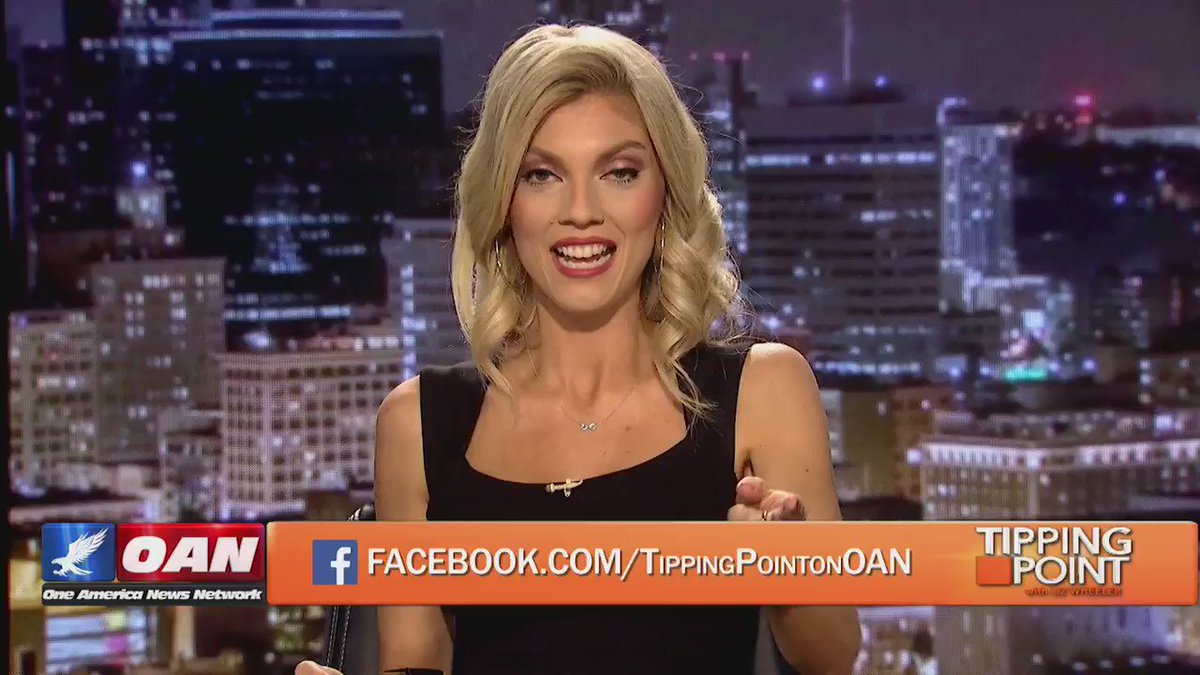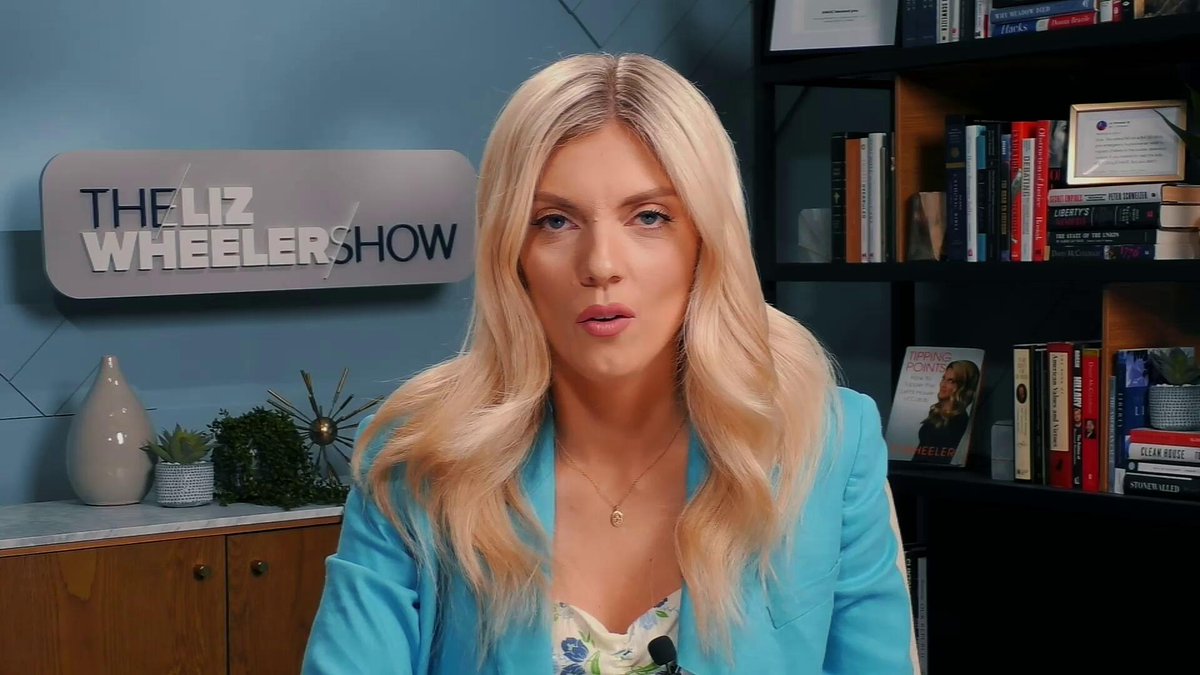Is truth becoming a casualty in the relentless churn of the modern media landscape? A recent video from conservative commentator Liz Wheeler offers a stark example of how easily misinformation can spread, casting doubt on the integrity of established experts and potentially influencing public opinion.
The focus of this particular instance centers around claims made by Liz Wheeler, a prominent figure in conservative media, who has been accused of spreading false information. The incident highlights a growing concern: the erosion of trust in credible sources of information and the increasing prevalence of narratives that prioritize ideology over factual accuracy. The implications of such trends are far-reaching, potentially impacting public health, political discourse, and the overall fabric of society. It underscores the need for critical thinking, media literacy, and a renewed commitment to verifiable facts in an era where information, both accurate and misleading, is readily available.
| Elizabeth Theresa Wheeler: A Closer Look | |
|---|---|
| Full Name: | Elizabeth Theresa Wheeler |
| Born: | July 12, 1989 |
| Occupation: | Conservative Political Commentator, Author, Podcast Host |
| Known For: | Hosting "The Liz Wheeler Show," Author of "Hide Your Children: Exposing the Marxists Behind the Attack on America's Kids," and former host of "Tipping Point with Liz Wheeler" on One America News Network (OANN). |
| Education: | Information Not Readily Available in Public Domain |
| Political Affiliation: | Conservative |
| Social Media Presence: | Active on Twitter (@lizm_wheeler) and other platforms. |
| Key Publications/Shows: | "The Liz Wheeler Show" (Podcast & TV Show), "Hide Your Children: Exposing the Marxists Behind the Attack on America's Kids" |
| Controversies: | Involved in spreading misinformation, as indicated by the beginning of the article |
| Reference: | Wikipedia |
The episode serves as a microcosm of the challenges facing a society grappling with the complexities of information dissemination. It is crucial to understand the sources from which we derive information and to critically evaluate the claims presented, especially when they involve potentially sensitive or impactful subjects. Furthermore, the ease with which false claims can circulate highlights the responsibility of media outlets and individuals to act as gatekeepers of truth. This involves fact-checking, verifying information, and clearly distinguishing between opinion and verified fact. The spread of misinformation also threatens to further polarize already divided opinions. If the public is uncertain about the truth of what they are reading and seeing then it can be a threat to the society at large. This makes it imperative to engage in critical evaluation of the information to which they are exposed.
Wheeler, a self-described conservative commentator, has built a platform based on providing commentary and analysis on current events from a right-leaning perspective. Her career trajectory illustrates the changing landscape of media, highlighting the power of podcasts, online platforms, and social media in shaping public discourse. She is a host of "The Liz Wheeler Show" and the author of "Hide Your Children: Exposing the Marxists Behind the Attack on America's Kids." Prior to this, Wheeler hosted "Tipping Point with Liz Wheeler" on One America News Network (OANN), a program known for its conservative perspective and frequently used to highlight the closing argument of the show: "Final Point."
Wheelers show "The Liz Wheeler Show" which is available on multiple platforms, epitomizes the media trend. With this format, she engages in her own style of challenging everything, reflecting a broader move towards challenging established viewpoints, which can be beneficial for society if done correctly, however, carries the risk of spreading false claims as seen in the previous context. She is often outspoken in her views on political matters, and her commentary tends to resonate with a specific audience aligned with her own ideological stance. Her approach, however, is part of the larger conversation surrounding the role of media in society and the need for critical media literacy.
The very nature of this event points out the need for responsible journalism and for those in the media to take the responsibility of reporting facts and the truth. The implications of allowing untruth to circulate is something that can be extremely detrimental. It can do so much to erode the faith that the public has in public officials, government agencies, scientists, and various media outlets. Further, by making such claims it does no service in addressing the underlying problems of society and the issues that need to be faced. This does more to confuse the situation rather than add to the solution of these issues.
The spread of misinformation, as highlighted by this case, has the potential to shape public opinion. The impact extends to shaping public health, which is critical in this instance as the claim relates to the opinion of a medical professional. The damage that these claims can do is very wide reaching.
While the media landscape is becoming more diversified, it is also getting more complicated and challenging to navigate. The presence of such claims as those presented by Liz Wheeler creates new difficulties and obstacles for those in the media. These challenges make it difficult to find information that is reliable. The result is that trust is lost in institutions that we use for daily news consumption. With this distrust, the public is more likely to believe in other narratives and to get their information from a variety of places. This is another challenge for society to face. People need to learn to be more media-literate, to think critically about information they read. This is important now, more than ever.
The proliferation of such claims underscores the importance of supporting trustworthy media sources and of taking seriously the facts and news that they present. It becomes more and more crucial to check the sources of information, to cross-check information across many sources and to look out for biased claims. The publics ability to distinguish between factual claims and opinions is a crucial ingredient in a properly functioning society.
The issue of misinformation is not limited to any one country, and its effects can be felt across borders. The ease of sharing and reposting claims online means that information has the potential to spread very quickly. The impact of these claims, regardless of their source, can have a major influence on public opinions, political decisions, and social policy. These types of incidents provide an opportunity for citizens to question the sources of their information and to have discussions about what they read and hear. It underscores the need for an open and honest dialogue on the issue of misinformation, to find ways to promote media literacy and to reinforce the importance of fact-checking and objective reporting.
The dissemination of false claims, as exemplified by Liz Wheeler's statements, highlights a critical challenge of modern society. It involves a combination of factors, including the rise of social media, the fragmentation of traditional media outlets, and the increasing polarization of political discourse. The ability to disseminate information rapidly and widely, regardless of its veracity, means that such claims can quickly gain traction. To combat this, we must encourage media literacy, critical thinking, and fact-checking.
The implications of these claims are serious and could include: damage to the reputation of public figures, distortion of public perception, and potentially, damage to our nation's democratic institutions. By challenging our own understanding, we become stronger in dealing with the challenge of disinformation. Promoting factual reporting and media literacy is essential in an era where information, both accurate and misleading, is so readily available. This ultimately helps to strengthen public dialogue and safeguards the foundations of democracy.


